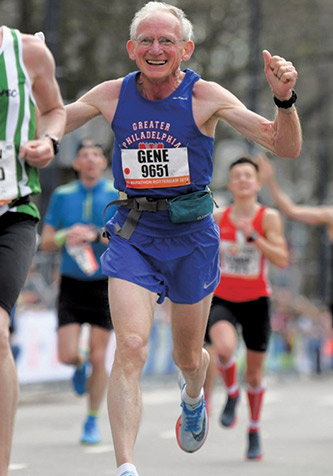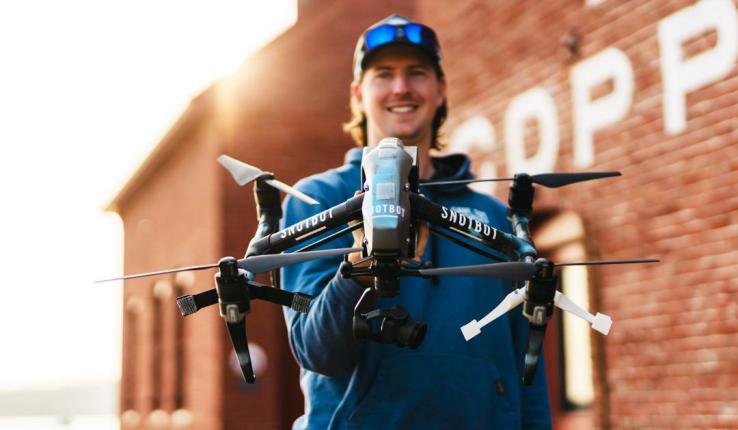Unfortunately, the race was certified but not sanctioned by USA Track & Field, which governs the sport, so the record isn’t official. Still, no one doubts that Dykes legitimately went where no one over 70 had ever gone before.
In the past 12 years, Dykes, who competed in track and field at Lehigh while pursuing a degree in chemistry, had 13 marathon personal records.
“I started running in middle school before the very first running craze, when people would stare and dogs would go insane like you were some kind of alien,” Dykes said. “Then I got to Lehigh, and it was terrible. I was totally blown off the track by the talent at the college level. I was hardly competitive. Rarely would I even get a third-place point.”
Dykes competed in events such as the triple jump, intermediate hurdles and high jump, picking up points that way.
“I was helpful on the team, but just not much on the track,” he said. “The experience made it firmly entrenched in my mind that I was a mediocre runner and there was no use for me to pursue racing after graduation.”
As he grew older, Dykes jogged and stayed in shape. Then, in his late 50s, he was encouraged by friends to run a race. The rest is history.
“I ran my first road race, a half marathon, and did pretty well,” said Dykes. “It was enjoyable, so I started doing lots of races, and I just kept getting better and better. New York City was my first marathon in 2006, and about six years later, I ran the Toronto marathon hoping to set a new personal record, but came up woefully short.
“From there, I hired a coach, and boy, my career really took off. I couldn’t believe how much he improved my game. Within five months, my marathon time improved by 20 minutes. I finished third in my age group in Boston and kept getting better every year since. I’m still improving.”
Dykes enjoys the challenge of racing, along with the camaraderie that running brings.
“You start building a community of friends that you see at races,” he said. “Training is something you look forward to every day. If you didn’t have these friends, you’d wake up in the morning and just go back to bed. The community gets you out of bed and onto the trail.”
After facing those earlier running struggles at Lehigh, Dykes never imagined his success now.
“Sometimes, you just have to wait for the time to be right,” he said. “Maybe running wasn’t right for me earlier, but it was later. Winning isn’t so important, but doing as well as I can is always important. Of course, winning is a benchmark, but I’m always out to beat my most fierce competitor—which is me from the previous year.”
Dykes learned a number of lessons at Lehigh that stay with him to this day, as an athlete and student. He had arrived at Lehigh thinking he’d be an engineer, but that lasted one semester. After talking with a dean, he switched his major to biology, then chemistry. He said he got “totally hooked” on computer programming after attending a seminar and ended up pursuing computer programming as a career.
“Do what you enjoy,” Dykes said, “and don’t be afraid to change course.”
Story by Justin Lafleur





